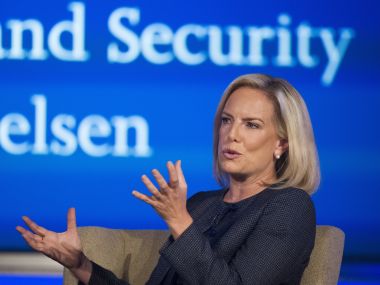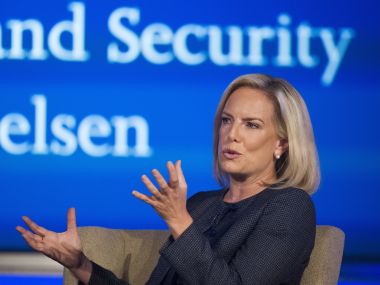New York: The US Department of Homeland Security (DHS) has released a 139 page document which sets out its plan to change the H1B visa intake process and recalibrate the educational qualification requirements of who (all) can be counted towards the regular, yearly stream of 65,000 visas in a move that will filter out more bachelor’s degree holders from the H1B program , raise the probability of more US Master’s degree holders filling the first wave of total available slots and eventually squeeze incoming batches US based H1Bs in future years. Analysts, immigration lawyers and H1B workers we spoke to are soaking in the new information as part of a continuum that they have gotten used to in the Trump era: Tougher entry criteria at the very first stage, a very high bar for visa extensions and the day to day reality of not being able to negotiate for better jobs despite a booming economy because of the constant threat of the end date on the H1B.
By increasing the chances of H-1Bs with advanced degrees from US institutions, the proposed H-1B pre-registration rule will shut out Indian H-1Bs with good bachelor's degrees from Indian universities who could potentially contribute to the US, https://t.co/YJ5Iwi9mp6
— Cyrus Mehta (@cyrusmehta) December 1, 2018
The proposed DHS rule wants to prioritise applicants with advanced degrees from US institutions over candidates with similar degrees from foreign institutions of higher education. In addition, employers filing for H1B visas under the proposed rule would have to pre-register with the USCIS so the lottery can go ahead without a full petition and the supporting documentation phase comes after the random selections are completed. The 2019 H1B season could look very different if this latest plan is cast in stone by then but that looks like a tall order at this moment. First up is a 30-day public comment period that begins after Friday’s proposal is officially published in the Federal Register - likely 3 December. The yearly H1B visa lottery has two streams: the regular one with 65,000 visas and the cap-exempt stream with 20,000 visas set aside for those with advanced degrees. [caption id=“attachment_5546051” align=“alignleft” width=“380”]  US Homeland Security Secretary Kirstjen Nielsen. AP[/caption] “It just means that advanced Degree holders will be thrown in the first lottery with everyone else first and only then access the 20,000 exemption. Right now, 20,000 advanced degree holders are pulled out of the whole first, and only then thrown in with the rest. It basically increases the probability of an advanced degree holder getting picked in the overall lottery without giving them first preference”, is how David Bier of Cato Institute interprets the high level takeaway from the DHS proposed rule. DHS says the US Citizenship and Immigration Services (USCIS) struggles with overload from the random lottery process. USCIS has received well over 100,000 cap-subject petitions within the first few days of the H-1B filing period for the past five fiscal years. USCIS received 198,460 petitions in 2017, 236,444 in 2016, 232,973 in 2015, 172,581 in 2014, 124,130 in 2013 - all within the first five business days of the H-1B filing period. Here is the DHS explanation of how things currently work: “…In years when a sufficient number of petitions needed to reach the regular cap or advanced degree exemption are received during the first five business days that H-1B cap- subject petitions may be filed, USCIS selects qualifying petitions towards the H-1B advanced degree exemption first. H-1B cap-subject petitions eligible for the advanced degree exemption, but not selected for the advanced degree exemption, are then included in the H-1B regular cap random selection process. Under the proposed amendments, USCIS would select all registrations toward the projected number of petitions needed to meet the regular cap first until the regular cap is reached. Once the projected number of registrations needed to meet the regular cap is reached, USCIS would then select registrations that are eligible for the advanced degree exemption until the projected number of registrations needed to meet the advanced degree exemption is reached. USCIS is proposing to count all registrations toward the H-1B regular cap projections first, even in years when a random selection process at the end of the initial registration period may not be necessary. In such years, USCIS would continue to count all registrations toward the H-1B regular cap projections until such time as the projected number of registrations needed to reach the H-1B regular cap is met.” The DHS note explicitly states that “changing the order” in which it accepts and selects H1B petitions will “likely increase the total number of petitions selected under the regular cap for H-1B beneficiaries who possess a master’s or higher degree from a U.S. institution of higher education each fiscal year, particularly in years of high demand for new H-1B visas when USCIS is likely to receive a greater number of petitions for beneficiaries who qualify for the advanced degree exemption. Conversely, this process will likely decrease the total number of petitions selected for H-1B beneficiaries with less than a master’s degree from a U.S. institution of higher education and those with master’s or higher degrees from foreign institutions of higher education.” Although each new proposal or note from the DHS or USCIS affects the H1B program, it’s something that business leaders are pricing in with a shrug. Several heavy users of the H1B visa resource pool are experiencing staffing issues - especially not being able to get the people with hard skills they require - but they are already moving a lot of their work to nearshore locations in the US or to entirely new destinations in Europe. Canada and Budapest have emerged as a popular alternatives in the Trump era - one’s a stop gap arrangement when H1B extensions flame out, the other is a low-cost middle ground in a welcoming European eco-system.


)

)
)
)
)
)
)
)
)



